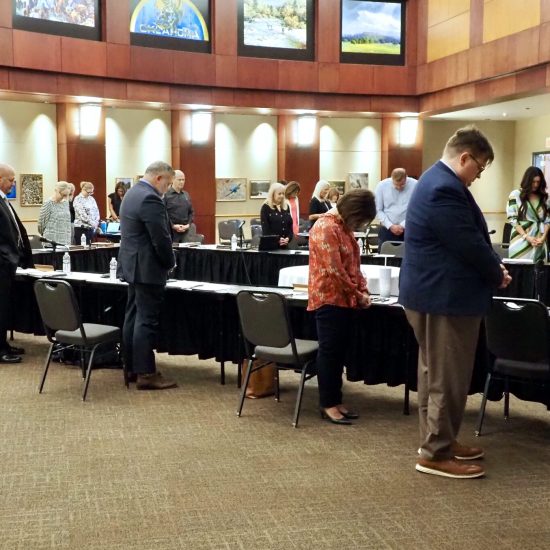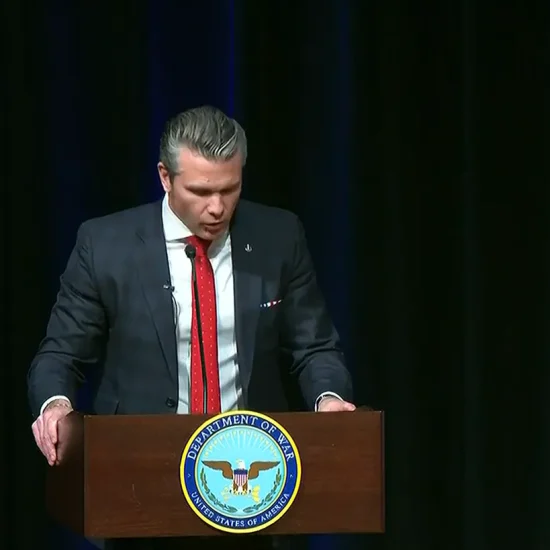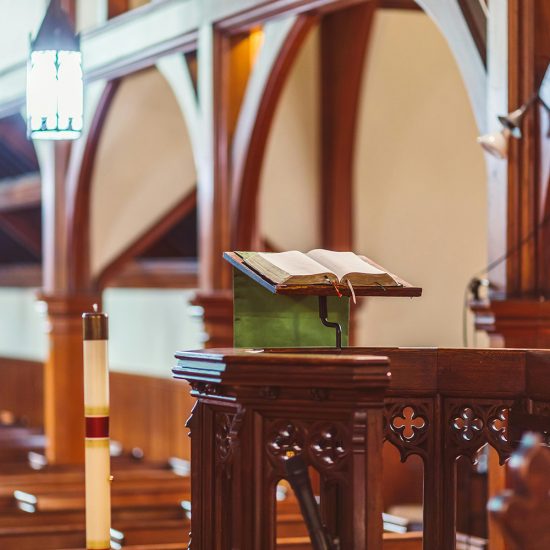The pastor of the Baptist church in the small rural community sauntered down the hall toward the school cafeteria, greeting students by name as he went. Once through the lunch line, he nabbed a table. Soon students, many who were church members, joined him and the banter and laughter began.
Does a pastoral lunch at school breach church-state boundaries? That depends: Does the school allow pastors from one denomination or faith tradition but not from others? Do the administrators require all students to participate? Do school officials promote the event?
 Congregations and faith groups assist local public schools as a means to become more involved in their communities — and often at the invitation of school boards and superintendents.
Congregations and faith groups assist local public schools as a means to become more involved in their communities — and often at the invitation of school boards and superintendents.
Tony Evans, pastor of Oak Cliff Bible Fellowship in Dallas, Texas, and founder of The Urban Alternative, started his National Church Adopt-A-School Initiative in 2006 because of a request from a high school principal for help with disruptive behavior. Evans developed a model of social outreach and school-based ministry that now is used in several schools across the Dallas-Fort Worth metroplex.
The ministry’s website claims there is an average of 14 churches for every public school in the nation. Evans believes the church and the public school are “the two institutions that bring people together more than anything else” and that both are essential to rebuilding communities, especially in urban areas.
But as churches work with schools, members must make sure they follow federal law and school board policies. State lawmakers generally leave volunteer decisions in local district hands, noted spokespersons for education commissioners in Missouri, Kansas, Nebraska, Illinois and Iowa.
K. Hollyn Hollman, general counsel for the Baptist Joint Committee for Religious Liberty, said district administrators and church leaders can ask themselves a simple question to help them stay within legal guidelines — what is the school’s involvement with an offered church program or activity, whether at school or in the church building?
Simply put — schools cannot support religion nor can volunteers share their faith or promote their churches while serving students on campus. Congregations also must exercise caution with school-assistance ministries, such as tutoring, offered in their own buildings, she said.
Again, church leaders should make certain the school is not involved in any way, including with promotion.
As long as school personnel and church leaders adhere to legal requirements, partnerships can benefit students, leaders in three districts believe.
Since becoming superintendent of public schools in Wichita, Kan., in July 2009, John Allison has encouraged active participation by and input from all community stakeholders — students, parents, staff, partners and business leaders, including faith groups.
“We believe faith-based partners, as well as partners from businesses and other community organizations, make a huge difference in our schools and for our students,” Allison said by email.
Currently, 112 faith-based partners assist schools in the Wichita district, primarily as mentors and volunteers. Faith groups donate necessities such as school supplies, coats, shoes and food. The district also uses church buildings as emergency evacuation sites.
Lee’s Summit, Mo., R-7 school district works with volunteers through its Partners in Education program and includes several churches. In addition, the community is invited to participate through school parent-teacher associations, booster clubs, the Lee’s Summit Educational Foundation and state programs.
“Within the partnership program, churches are treated in the same manner as other businesses or civic organizations, with the same expectations,” Communications Executive Director Janice Phelan said by email.
The Lee’s Summit district makes certain organizations that provide volunteers do background checks and understand and comply with campus security procedures. It also trains its staff about state and federal statutes and school board policies.
Both Lee’s Summit and Wichita districts require training for volunteers. The Wichita district provides the training, while Lee’s Summit hosts dialogues and an annual roundtable meeting and sends email updates to church leaders.
High Point R-3 school district near Jefferson City, Mo., relies on nearly everyone in the rural community to help provide extracurricular activities it otherwise wouldn’t be able to provide.
The Missouri State High School Association governs high school sports. Because the High Point school only includes grades K-8, it does not qualify as a member and cannot participate. Since Superintendent Stan Elliott is an individual member, High Point’s middle school teams are allowed to compete with other teams in the area.
But the school must rely on the community, including churches, to assist with coaching, supply referees, and provide and man concession stands. A local individual paid for new uniforms, Elliott said.
The three district leaders said few constituents have questioned faith groups’ involvement with schools. “While we have had a few questions about the separation of church and state, most of the questions can be resolved quickly by providing them information,” Allison explained.
All three also agreed that congregational involvement benefits their schools. “We have been pleased with the positive impact our churches and other business partners have had on our schools and students and appreciate their involvement,” Phalen at Lee’s Summit said.
“We have a strong faith-based community in Wichita and we are extremely thankful that so many in the community are willing to donate their time and resources to help our students and our teachers,” she said.
He added that often partnerships become “a two-way street” when student groups assist churches by collecting food or other items to benefit the needy in their communities.
High Point’s Elliott said pastors are allowed to visit the campus to be available to students who want to talk with them. Students still do programs at Christmas and Easter, and religious songs are included when the kids request them.
Elliott believes sometimes school administrators fear allowing congregations to get involved. They hesitate even when constituents support church participation. “You have to know your community,” he said.






